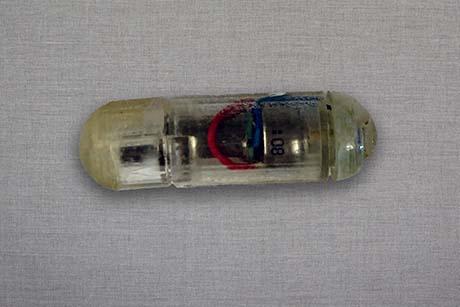Dan Frey Named D-Lab Faculty Director
Professor of mechanical engineering brings a long association with D-Lab and a commitment to design for the developing world.
Professor J. Kim Vandiver, MIT dean for undergraduate research, has appointed Professor Daniel Frey of the Department of Mechanical Engineering the new faculty director of the MIT D-Lab. Vandiver has functioned in that role since its earliest days and says, “I am delighted to have Dan Frey take on this important leadership role in D-Lab at an exciting time. He combines a deep interest in design with a desire to strengthen research, which will have positive impact in the developing world.”
Frey will work closely with D-Lab leadership and staff to advance the program's mission, values, ideals, and culture. Says D-Lab founder Amy Smith, “I’ve had the pleasure of teaching with Dan and am excited that he will be joining us in this capacity. Dan and his approach to systems thinking will be a valuable asset for D-Lab as we move forward with our strategic plan.”
“I think D-Lab is a really important organization — for the communities it serves, for students, for MIT,” Frey says. “When this role cropped up, it seemed like a great opportunity.”
Frey is no stranger to D-Lab. “Dan has been a supporter of D-Lab since the early days,” says Smith. In fact, over the years, Frey has supervised or co-supervised 10 projects at D-Lab and has formed strong working relationships with the D-Lab research and program staff.
With Frey’s help, D-Lab expects to further develop its research program and deepen its scholarship while maintaining a focus on practical impact, genuine connection with communities, and respect for the creative capacity of people living in poverty. D-Lab’s current research and program portfolio includes biomass fuel and cookstoves, off-grid energy, mobile technology, local innovation, agricultural needs assessment, and developing world mobility.
“I really hope that a lot of my contributions are down in the trenches of projects,” Frey. says “My research concerns the planning of experiments and analysis of data, especially when the goal of the experiments is to inform mechanical design. I foresee lots of chances to partner with D-Lab teams and help them get more out of their experiments.”
A big part of Frey’s job is working with students on products intended for the developing world. “One example is a vaccine cooler design,” says Frey. “A remarkably large fraction of vaccines is damaged somewhere along the way as they travel through the cold chain. It turns out temperatures that are too low are a principal culprit rather than temperatures that are too warm,” he explains. “We had an idea — ‘we’ being me and Prithvi Sundar, a mechanical engineering graduate student at the time — to change the configuration of a cooler, to change the arrangement of phase change material, insulation, and vaccines to avoid such problems across a much broader range of conditions.”
Another project Frey is working on is Surgibox, a project that began its development at D-Lab in 2011 when Debbie Lin Teodorescu brought the then nascent idea to D-Lab staff and researchers. Dan says, “I just made an offer — and it was accepted I’m happy to say — for a research assistant to join the Surgibox effort. The idea is to make surgeries safer when they have to be done in austere settings by maintaining more nearly aseptic conditions around the surgical site for the most common abdominal and thoracic procedures.”
In addition to bringing his considerable experience in research and engineering, in teaching, and project supervision, Frey will play a key role in coordinating D-Lab’s activities with other parts of the Institute by promoting faculty engagement in D-Lab courses, programs, and research and strengthening D-Lab’s alignment and collaboration with programs throughout MIT.
Some of those connections and engagements are already in place. In Frey’s role as co-director of experimental design research in the SUTD-MIT International Design Center (IDC), he is helping to implement experimental designs in the field and also learn from those experiences to improve the methods for planning experiments. Much of the field work has been done in association with the IDC’s Developing World track which, according to the program website, “aims to significantly improve conditions in the developing world by working with partners in developing countries.”
Frey also serves as faculty advisor for the Comprehensive Initiative on Technology Evaluation (CITE), a consortium of six MIT partners established in 2012 by a multimillion-dollar award from USAID. CITE is led by the Department of Urban Studies and Planning and includes D-Lab, Center for Transportation and Logistics, the Priscilla King Gray Public Service Center, and the Sociotechnical Systems Research Center.
Of his four years working with CITE, Frey says, “I’ve learned that there’s work being done all over the world with good intentions to alleviate problems related to poverty. I’m surprised over and over by the many things that don’t ultimately succeed. This work is very hard, complicated, and demands a broad range of disciplinary knowledge. I’m strongly committed to making things, testing them, and I hope, scaling the solutions.”
In addition to the many other roles Dan Frey plays mentioned in this article, he is also co-principal investigator of BLOSSOMS, video lessons intended to enrich students' learning experiences in high school classrooms from in the U.S. and around the world.
Dan holds a PhD in mechanical engineering from MIT, an MS in mechanical engineering from the University of Colorado, and a BS in aeronautical engineering from Rensselaer Polytechnic Institute.


